VJ Day: People celebrate with street parties and kisses
- Published
On 15 August it will be 75 years since Victory over Japan (VJ) Day in 1945, which marked the end of World War Two.
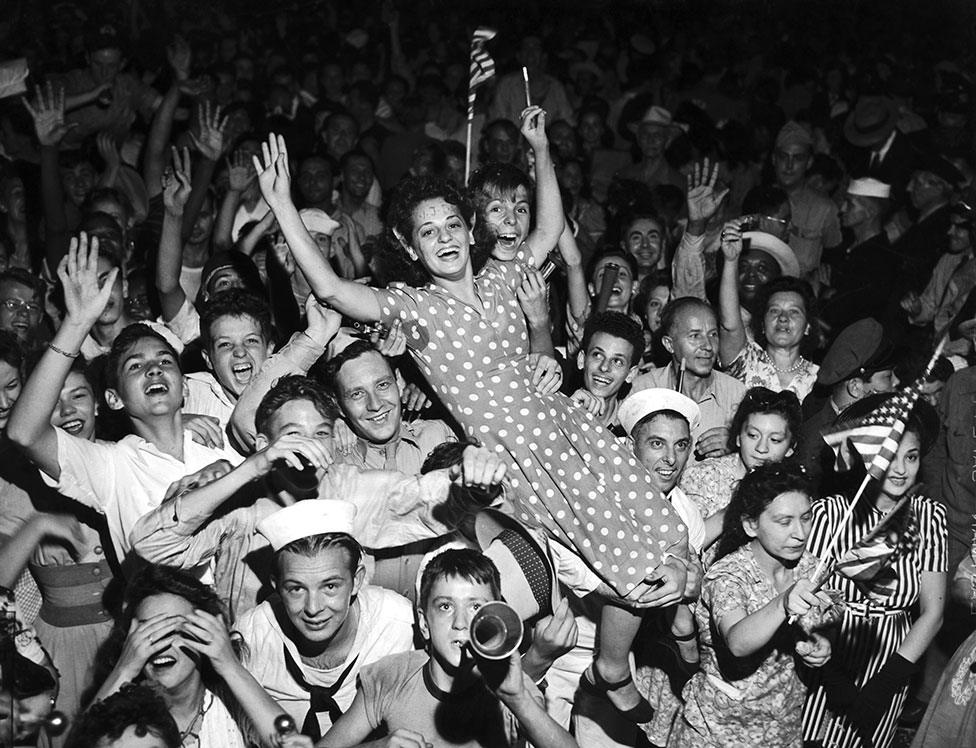
A crowd in New York celebrates the surrender of Japan
After the surrender of Japan on 14 August 1945, two days of national holiday were announced for celebrations in the UK, the US and Australia.
Millions of people from the Allied countries took part in parades and street parties.
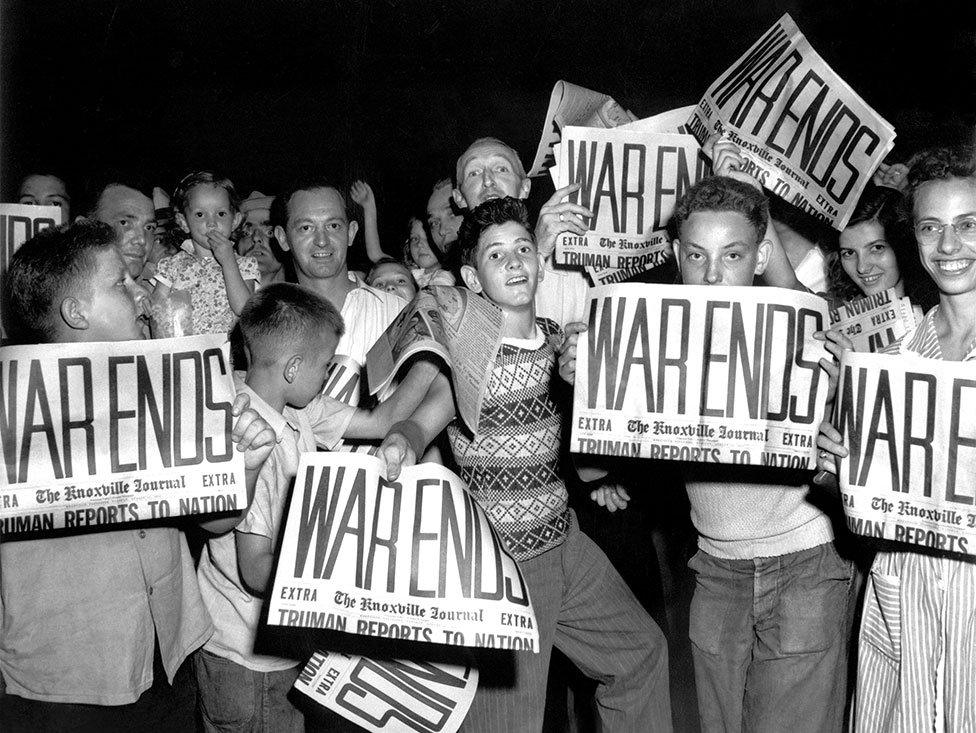
Children in Oak Ridge, in the US state of Tennessee, hold newspapers declaring the end of the war
Germany had surrendered on 7 May 1945, followed by Victory in Europe (VE) Day on 8 May, but World War Two still continued in the Asia-Pacific region.
British Prime Minister Winston Churchill said then: "We may allow ourselves a brief period of rejoicing, but let us not forget for a moment the toil and efforts that lie ahead."
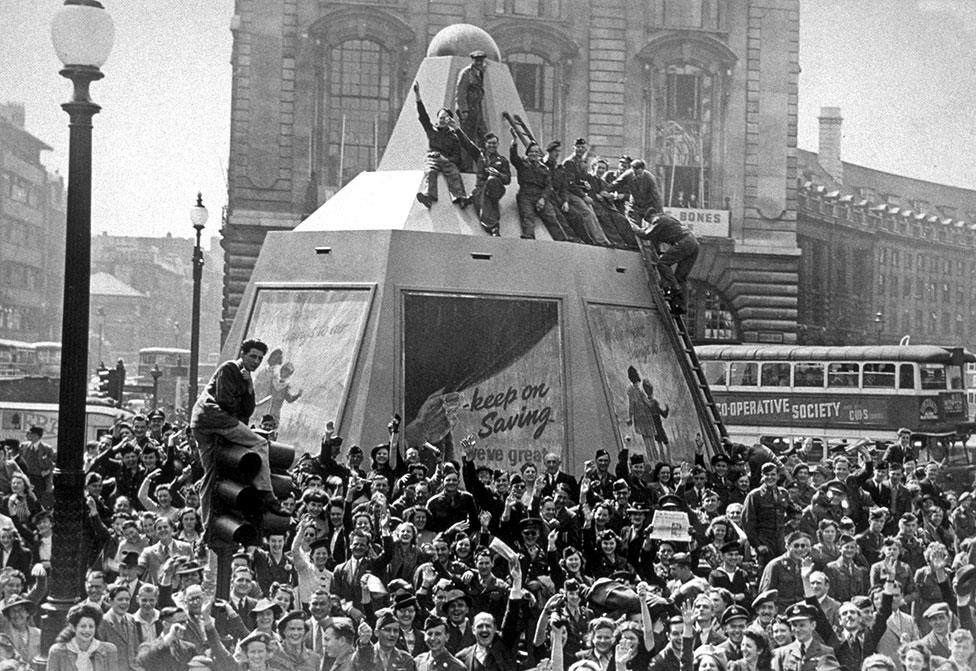
People celebrate in Piccadilly Circus, London
An estimated 71,000 soldiers from Britain and the Commonwealth were killed in the war against Japan, including more than 12,000 prisoners of war who died in Japanese captivity.
Japan treated prisoners of war very badly, including American and British soldiers who had surrendered.
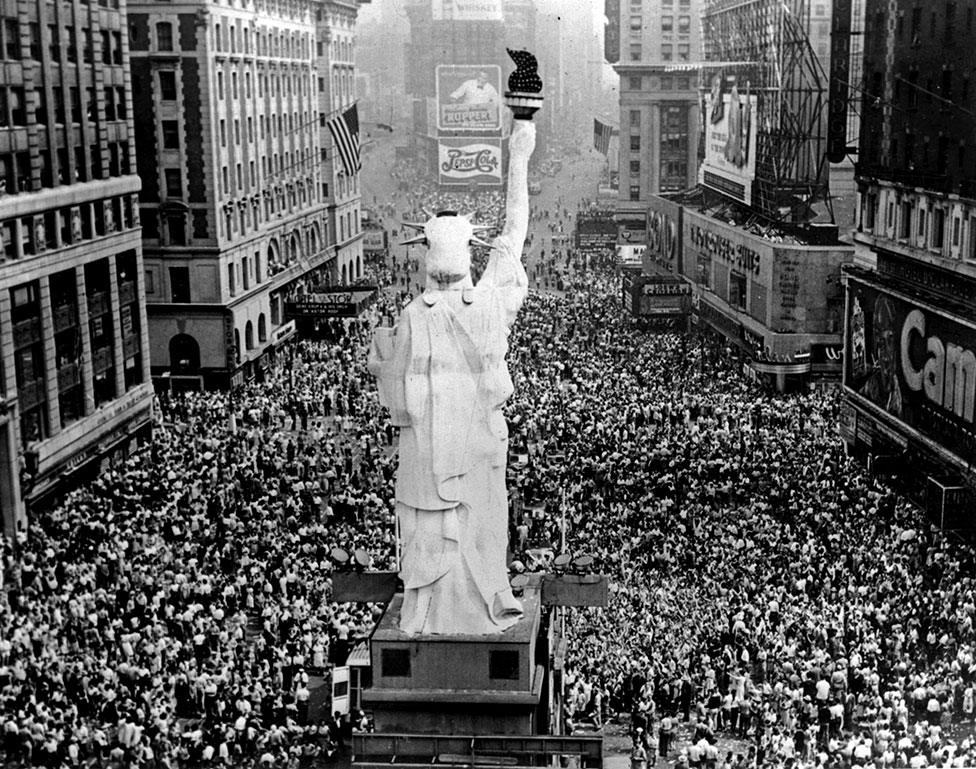
A scaled-down version of the Statue of Liberty is seen as part of VJ Day celebrations in Great White Way, New York City
Following the end of the fighting in Europe, the Allies told Japan to surrender by 28 July 1945, but the deadline passed without them doing so.
It wasn't until the US had dropped atomic bombs on the Japanese cities Hiroshima and Nagasaki, on 6 and 9 August, that Japan surrendered and ended the war.
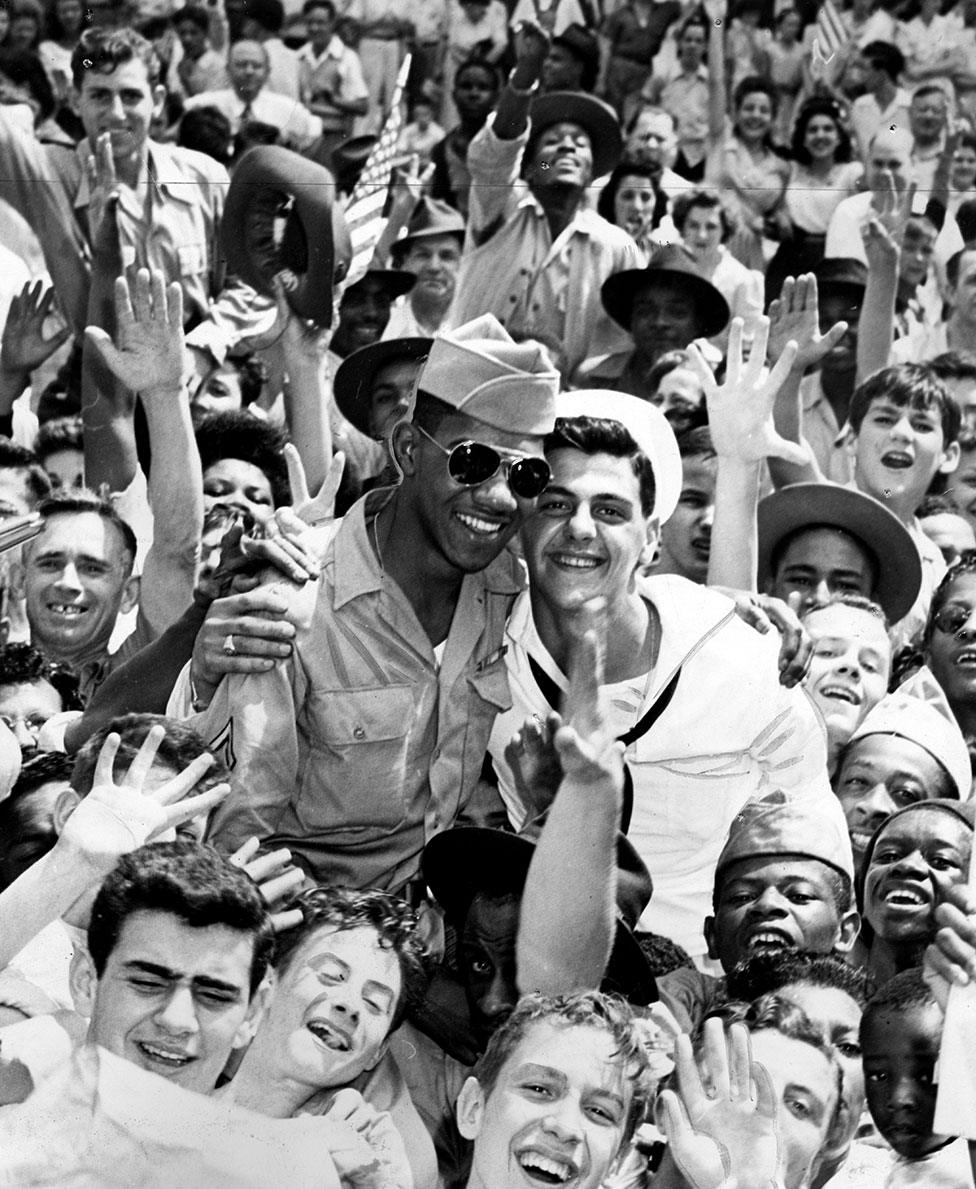
Soldiers join celebrations in Newark, New Jersey, US
The recorded death tolls of the atomic bombings are estimates, but it is thought that about 140,000 of Hiroshima's 350,000 population were killed in the blast, and at least 74,000 people died in Nagasaki.
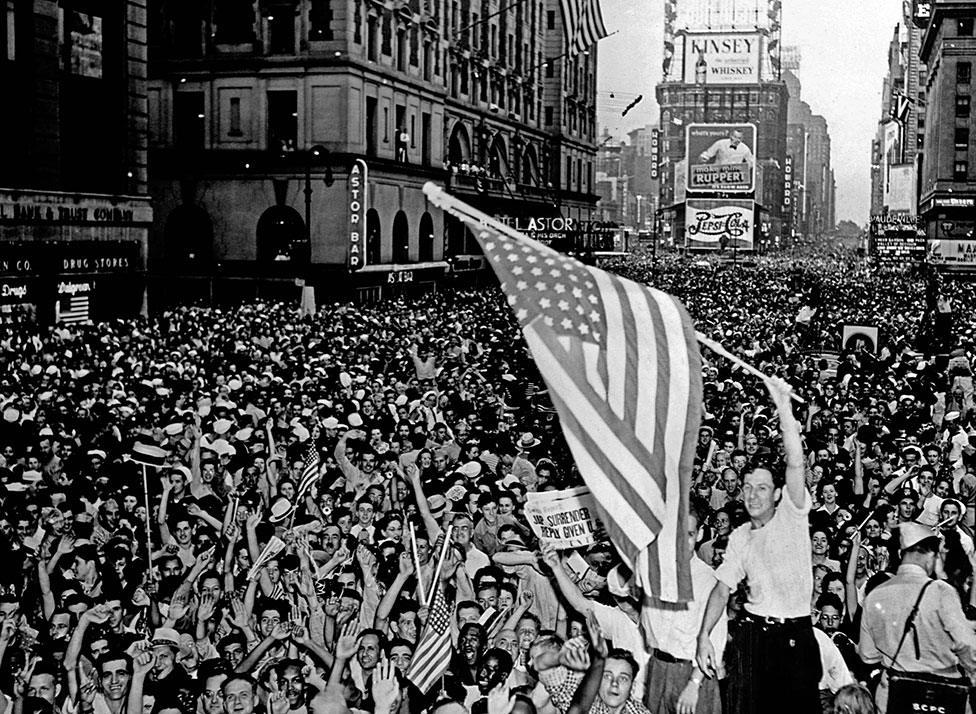
People crowd the streets to celebrate in New York City
After days of rumours, US President Harry S Truman broke the news of Japan's surrender at a press conference on 14 August.
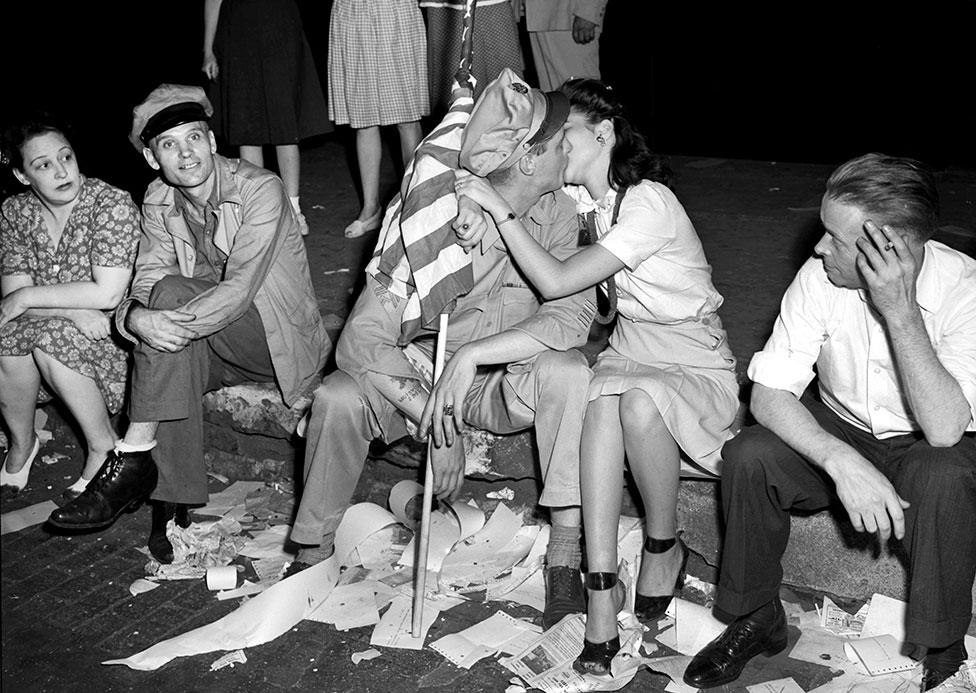
A couple kiss as they celebrate VJ Day in Kansas City, Missouri, US
In an address to a crowd that had gathered outside the White House, President Truman said: "This is the day we have been waiting for since Pearl Harbor. This is the day when fascism finally dies, as we always knew it would."
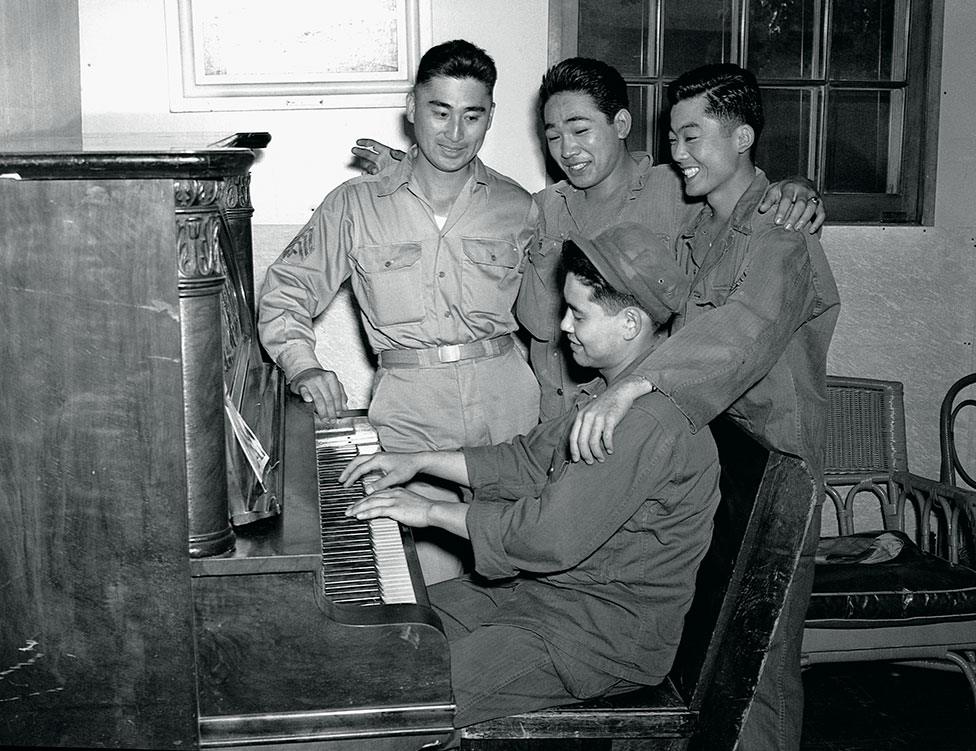
US soldiers celebrate at Fort Snelling, Minnesota, US
British Prime Minister Clement Atlee said: "The last of our enemies is laid low."
He expressed gratitude to Britain's allies, the Dominions of Australia and New Zealand, India, Burma, all countries occupied by Japan, and the USSR.
He added that special thanks went to the US "without whose prodigious efforts the war in the East would still have many years to run".
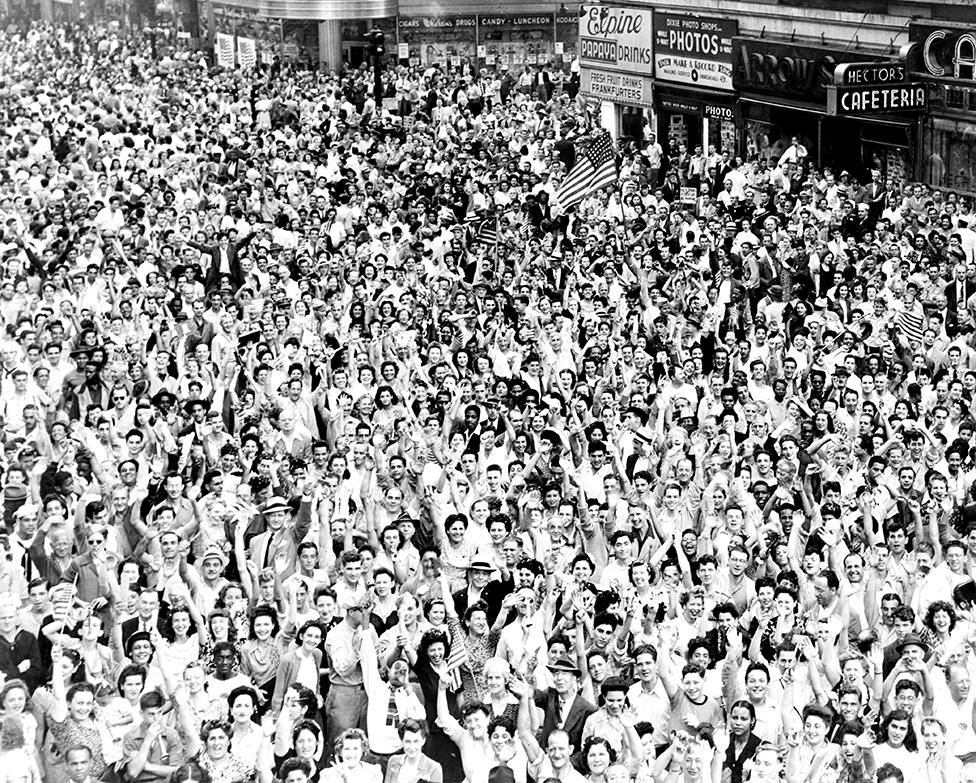
Times Square, New York City, US
The following day, Japan's Emperor Hirohito was heard on the radio for the first time ever in a broadcast in which he blamed the use of "a new and most cruel bomb" for Japan's unconditional surrender.
He added: "Should we continue to fight, it would not only result in the ultimate collapse and obliteration of the Japanese nation, but would lead also to the total extinction of human civilisation."
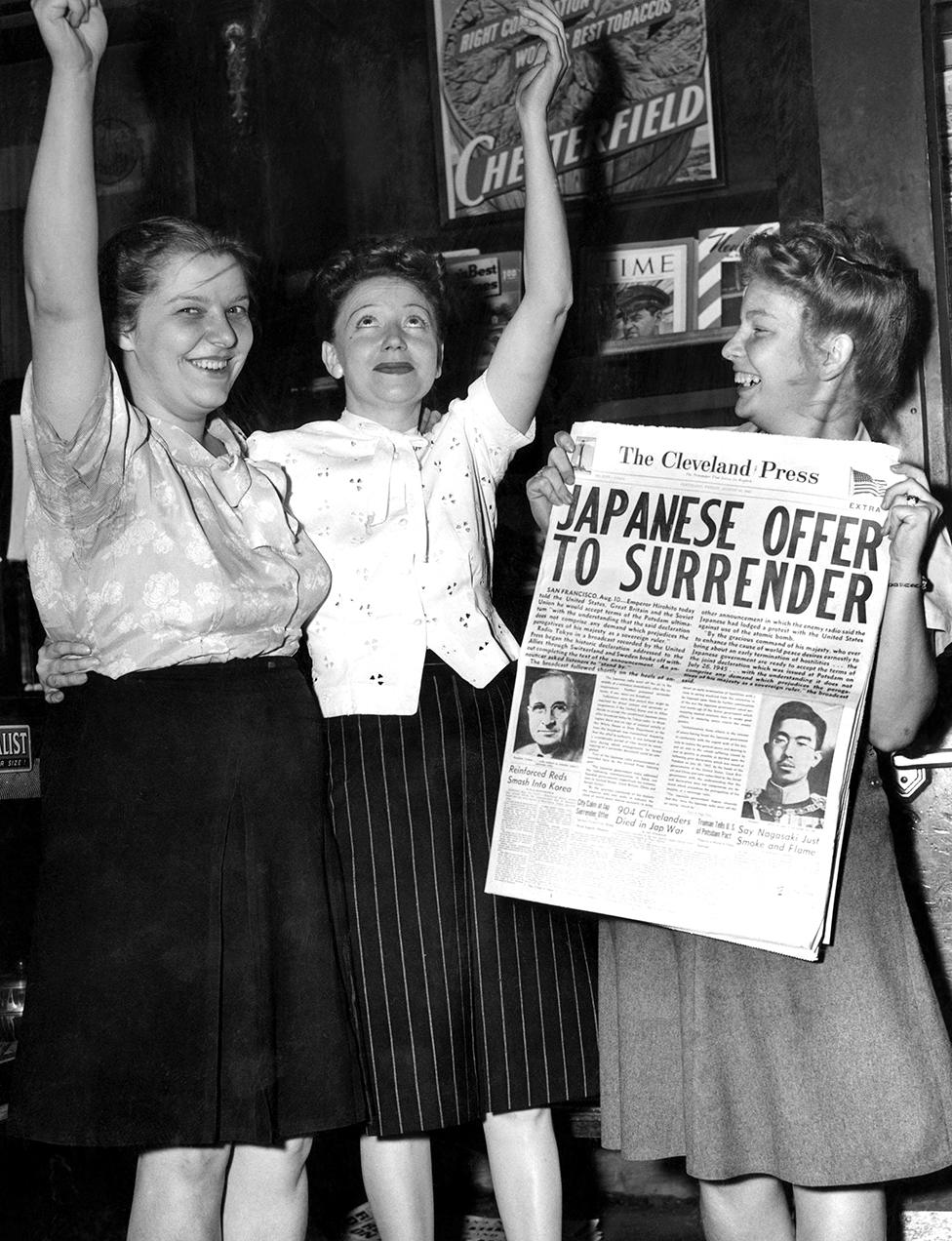
Women in Ohio, US, celebrate as they hold The Cleveland Press newspaper

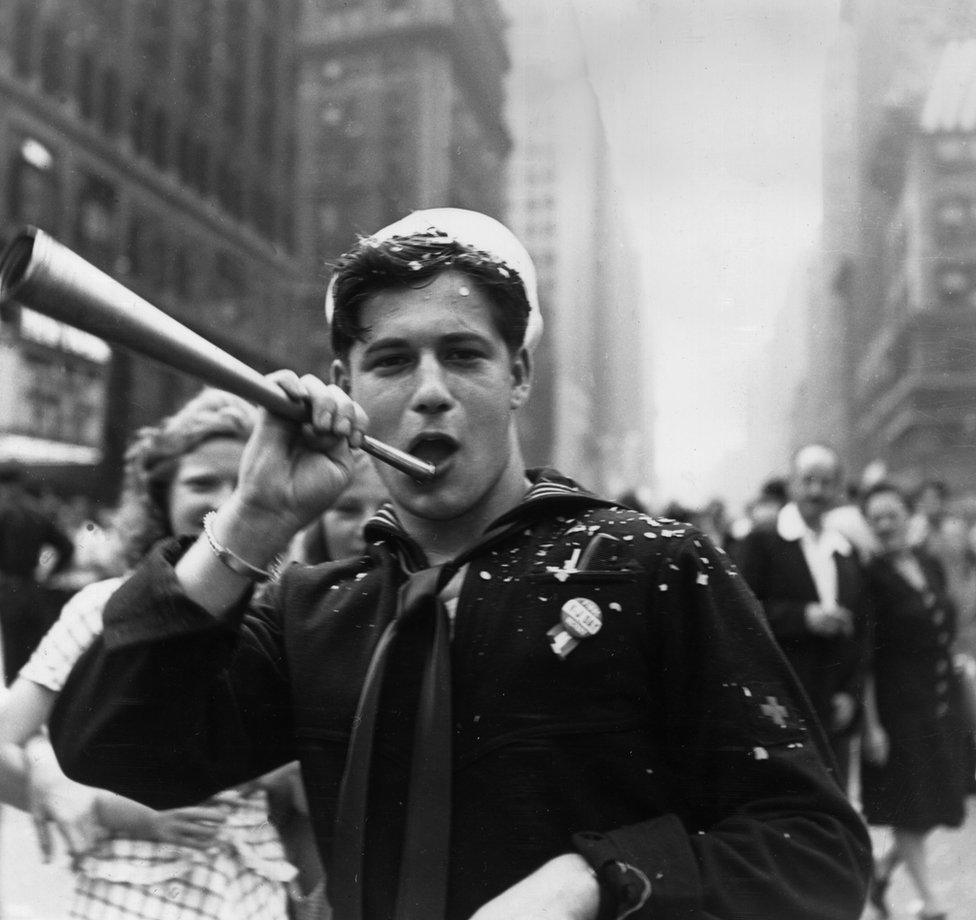
Times Square, New York City, US
In London, the Royal Family greeted cheering crowds from the balcony of Buckingham Palace.
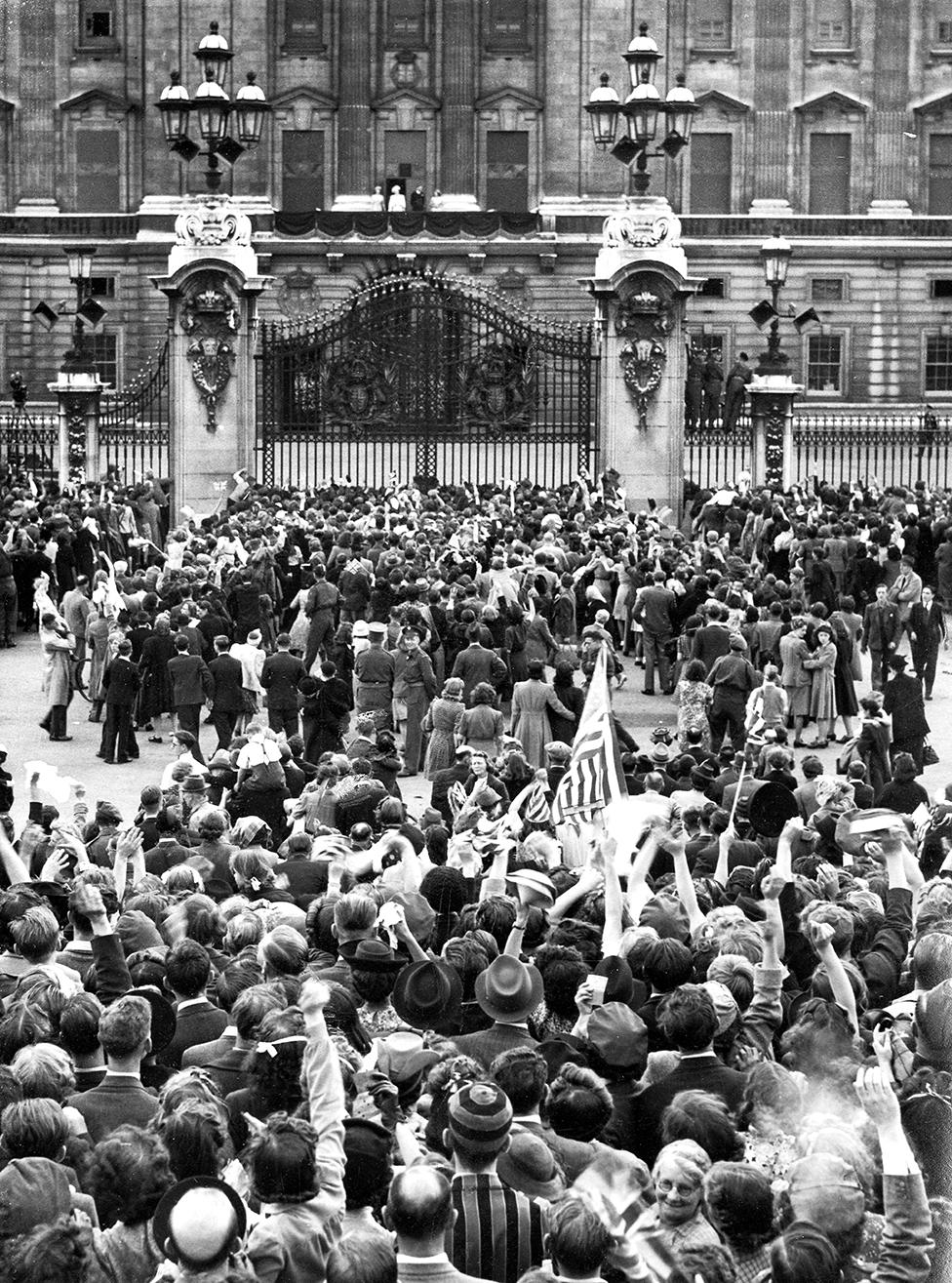
Crowds gather outside Buckingham Palace
Thousands watched King George VI and the Queen driven down the Mall in an open carriage.
Princess Elizabeth and Princess Margaret later mingled with the crowds outside the palace.
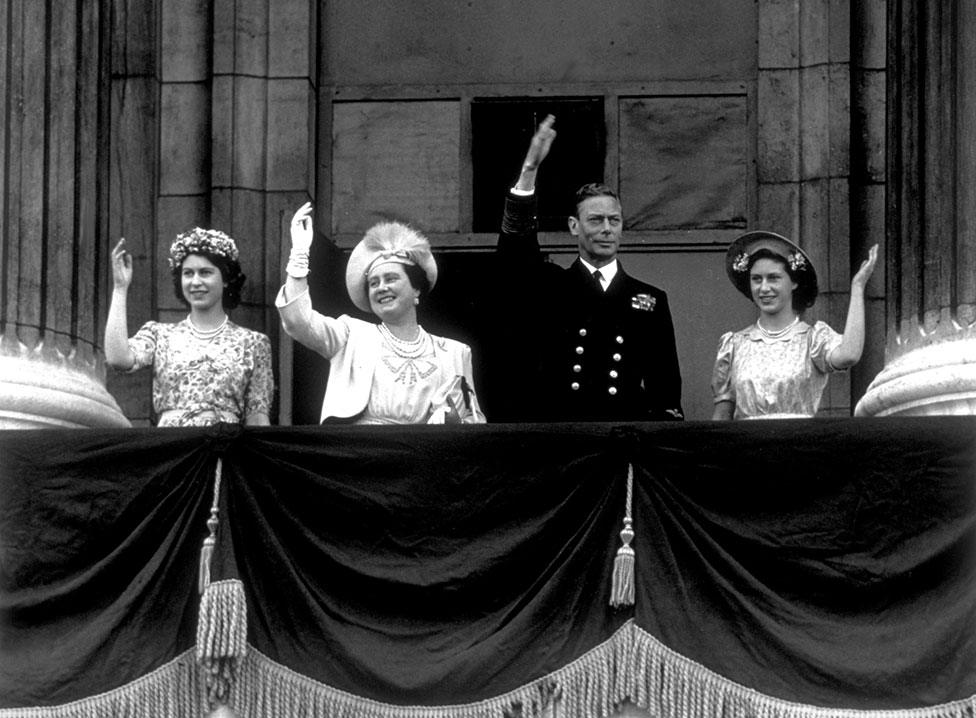
The Royal Family wave on the balcony of Buckingham Palace on VJ Day: (left to right) Princess Elizabeth, Queen Elizabeth, King George VI and Princess Margaret
That evening, the King addressed the nation and the Empire in a broadcast from his study at Buckingham Palace.
He said: "Our hearts are full to overflowing, as are your own.
"Yet there is not one of us who has experienced this terrible war who does not realise that we shall feel its inevitable consequences long after we have all forgotten our rejoicings today."
The official surrender documents were signed by Japan on 2 September aboard the USS Missouri battleship in Tokyo Bay.
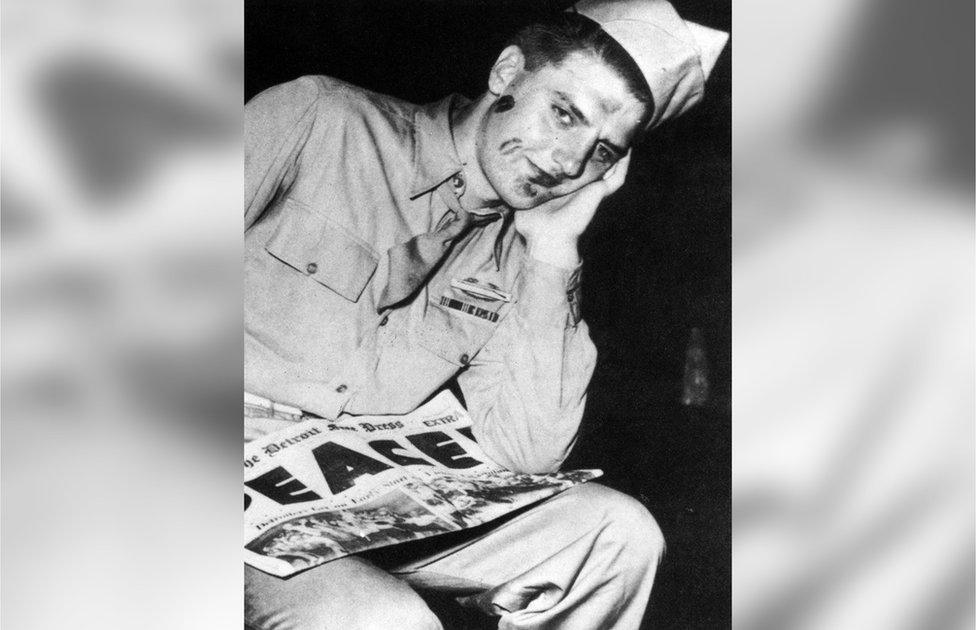
An American soldier with lipstick on his face
VE Day and VJ Day marked victory for the Allies, but the lives of millions who had lost loved ones had been changed forever.
All photographs subject to copyright.